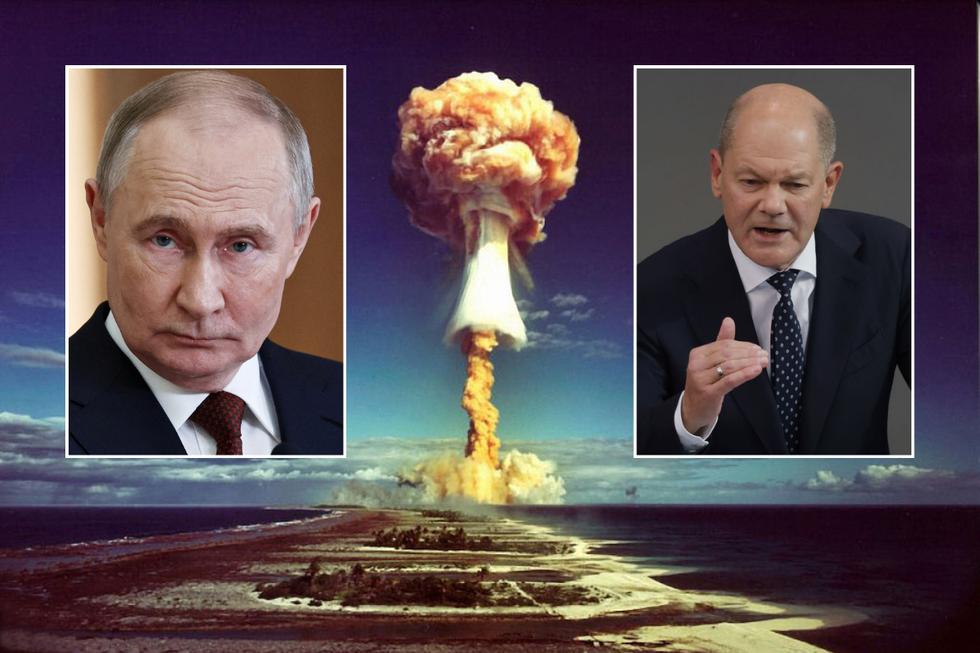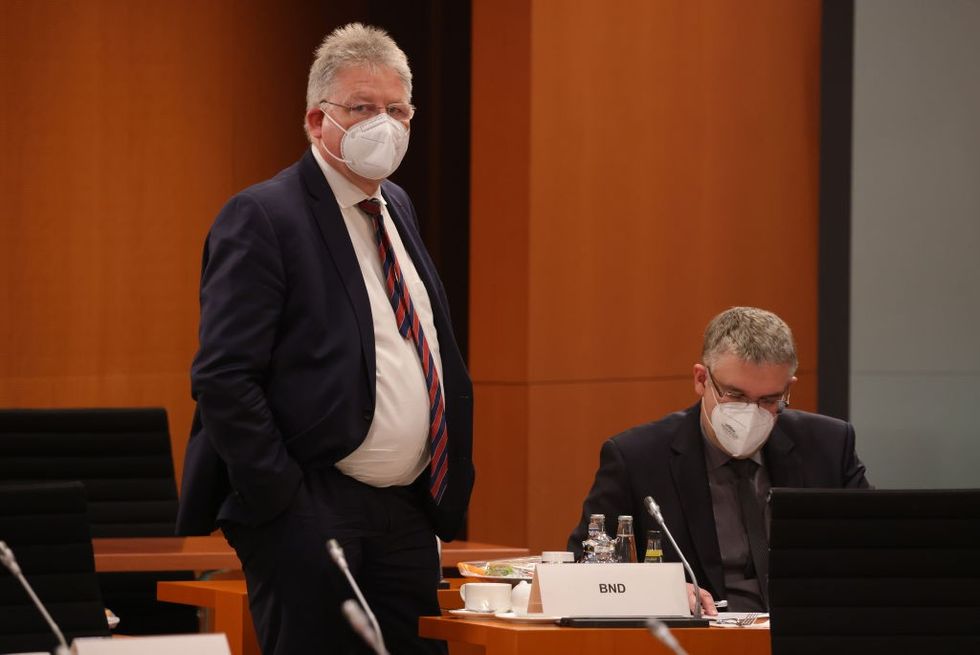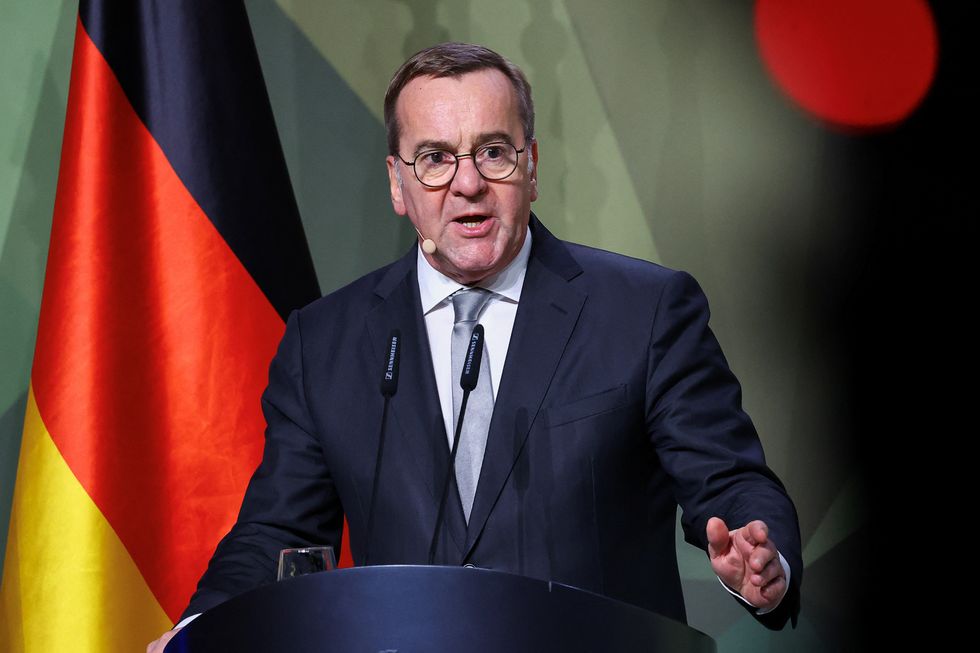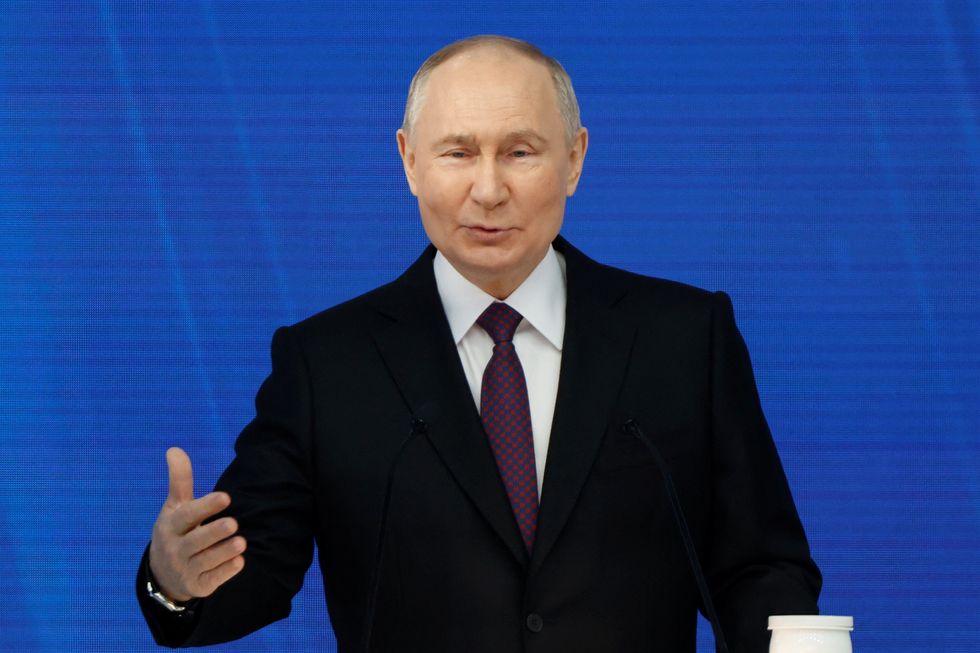Russia’s acts of sabotage against Western targets could prompt NATO to invoke its Article 5 mutual defence clause, Germany’s intelligence chief warned yesterday.
Bruno Kahl, head of the Bundesnachrichtendienst, told a Berlin think tank that Moscow is expected to step up its hybrid warfare tactics.
His stark warning comes after a Chinese cargo ship allegedly severed two critical data cables in the Baltic Sea in what European officials believe was an attack orchestrated by the Kremlin.
The ship is accused of deliberately dragging its anchor across the sea floor over 110 miles whilst off-radar, damaging vital communications links between Lithuania and Sweden, and Finland and Germany.

German officials have warned the West is on ‘precipice of WW3’
GEety/Reuters

Bruno Kahl, head of the Bundesnachrichtendienst
Getty
Germany’s defence minister, Boris Pistorius said the November 17-18 incident was likely sabotage, part of Russia’s expanding campaign of hybrid warfare. European investigators told the Wall Street Journal that the massive Yi Peng 3 bulk carrier turned off its radar system before cutting the Sweden-Lithuania cable around 9pm on November 17.
Six hours later, the vessel allegedly severed the Germany-Lithuania cable, having travelled approximately 110 miles. Danish Navy ships intercepted the vessel, forcing it to anchor in the Kattegat Strait between the Baltic and North seas.
Initial investigations revealed damage to the ship’s anchor and hull consistent with deliberate dragging. NATO ships are now guarding the vessel while Swedish and German authorities negotiate access to the ship and its crew.
A former senior European official told the Guardian that the EU is “totally unprepared” to confront Moscow’s campaign of hybrid warfare, lacking resources to counter sabotage, arson, assassination and infrastructure attacks.
LATEST DEVELOPMENTS

German Defence Minister Boris Pistorius
Reuters
Under Article 5, if a NATO member comes under attack, other alliance members are obliged to help respond, Kahl explained. He warned that Russia’s military would likely be capable of attacking NATO by the end of the decade.
Moscow’s war in Ukraine has provided it with battle-proven troops and mastery of modern drone warfare, the intelligence chief noted. According to Kahl’s experts, high-ranking Russian defence ministry officials doubt whether NATO’s Article 5 would actually be invoked in an emergency.
“We don’t have any indication yet that Russia intends to go to war, but if such sentiments gain the upper hand in Moscow, then the risk for a military confrontation will grow over the coming years,” he said.
Rather than seizing large territories, Russia might test NATO’s resolve through limited actions, such as deploying “little green men” to the Baltics to protect Russian minorities, Kahl suggested. US intelligence sources say a nuclear attack remains unlikely, despite Vladimir Putin’s increasingly bellicose statements.
 Putin has formally lowered the threshold for Russia’s use of nuclear weaponsREUTERS
Putin has formally lowered the threshold for Russia’s use of nuclear weaponsREUTERSThe recent US decision to allow Ukraine to fire American weapons deeper into Russia has not increased the nuclear risk, according to five sources familiar with intelligence assessments.
“The assessments were consistent: The ATACMs weren’t going to change Russia’s nuclear calculus,” one congressional aide told reporters.
Russia’s launch of its new Oreshnik ballistic missile last week has not altered this conclusion. However, Moscow is expected to expand its campaign of sabotage against European targets to increase pressure on Western support for Kyiv.
One US official noted that while Russia would not seek nuclear escalation, it would try to match what it views as US escalation through other means. The official added that Moscow has an extensive network of agents and is actively exploring options for advancing its “grey-zone” warfare against the West.